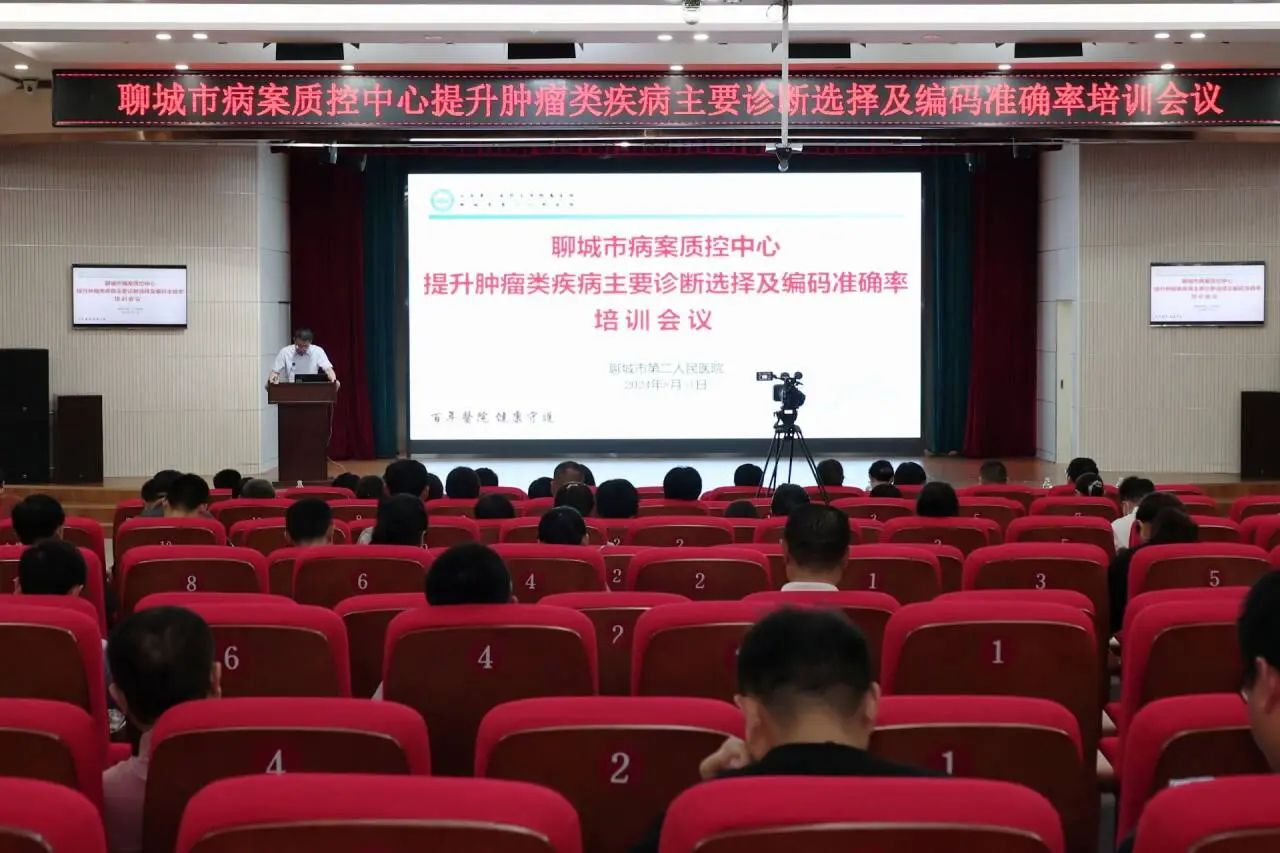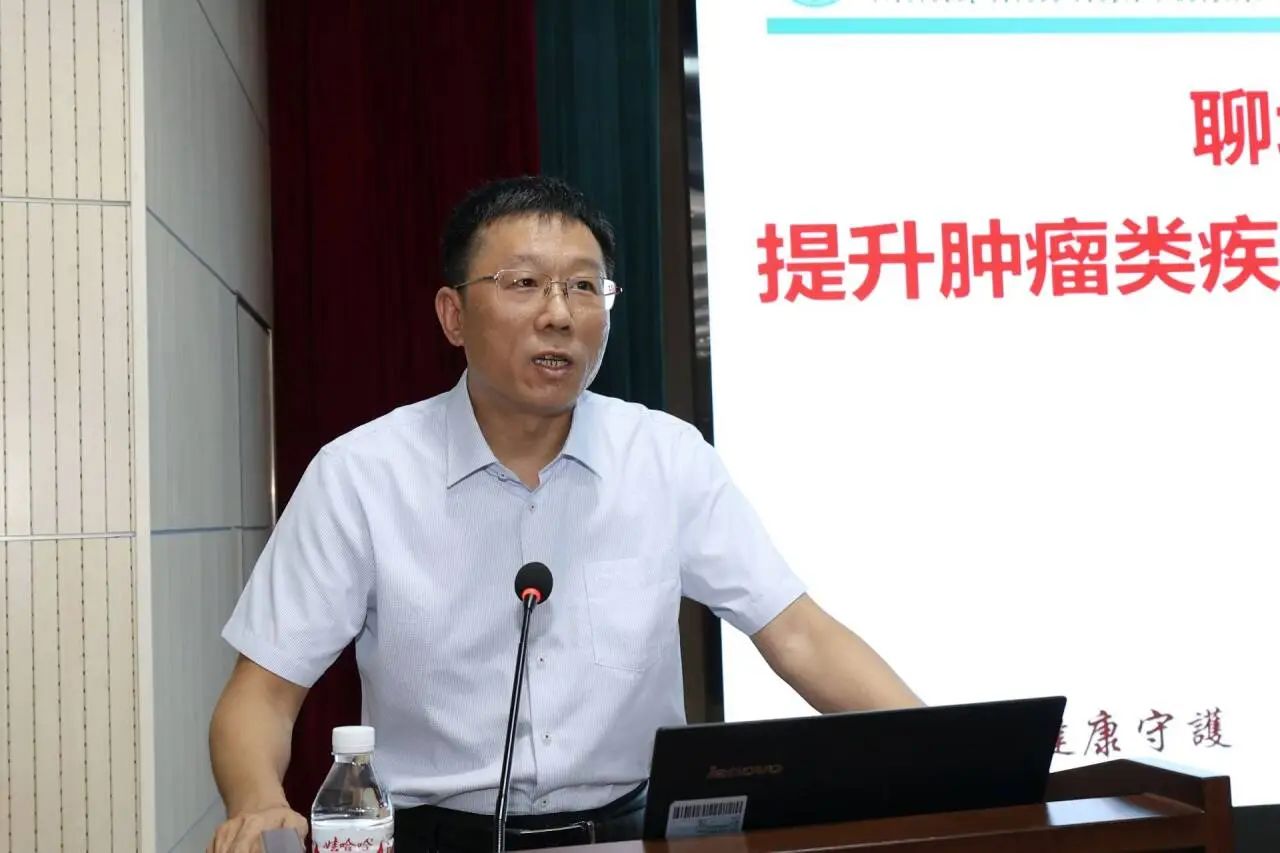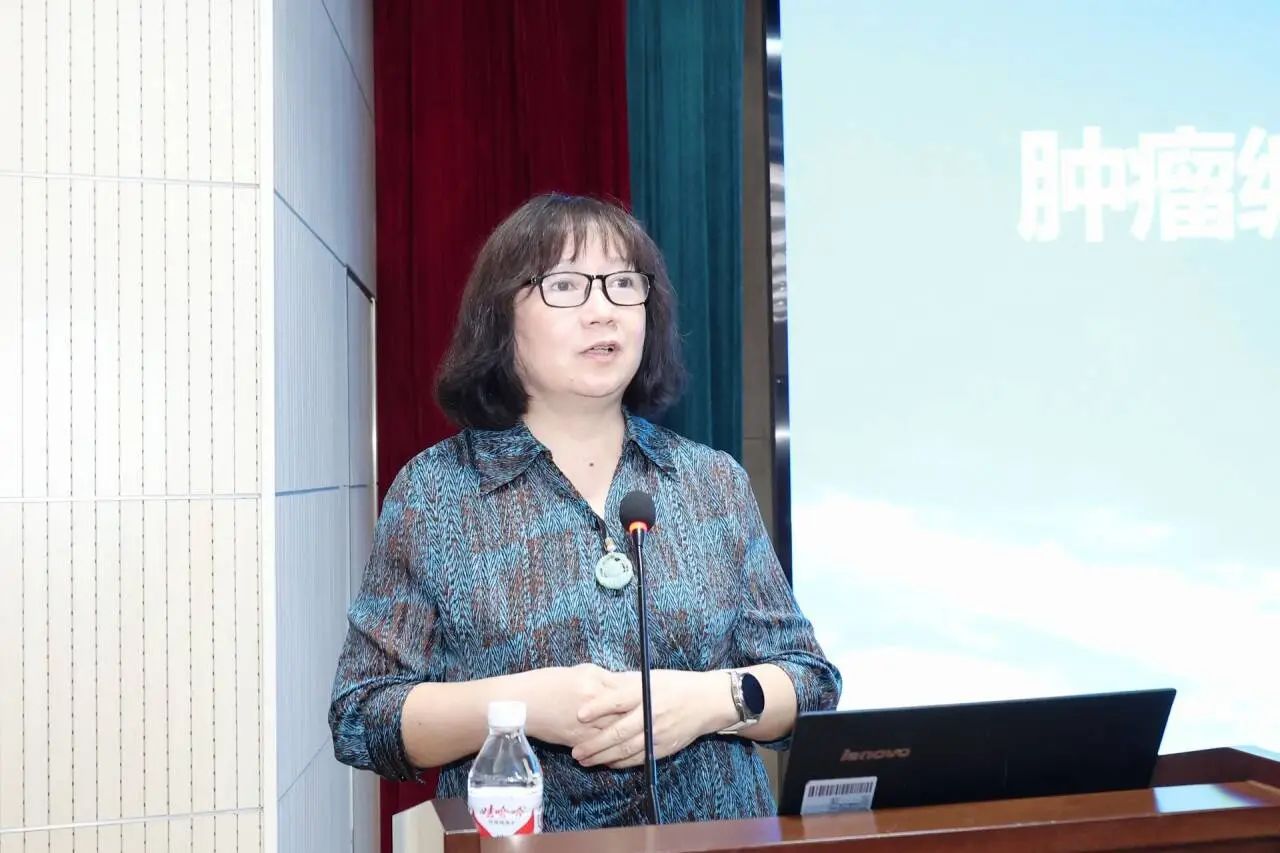- Date:2024-09-01
- Click:676Times

In order to implement the 2024 national healthcare quality and safety improvement goal and continuously promote the standardization and homogenization management of case quality; in the afternoon of August 31, Liaocheng City Case Quality Control Center to improve the selection of the main diagnosis of oncology diseases and the accuracy of coding training meeting was held in the academic lecture hall of Huamei Campus of our hospital. The meeting invited Liu Jing, a special expert from Beijing Health Big Data and Political Research Center, to give on-site lectures. Xiong Pan, vice president of our hospital, members of the city case quality control center, medical management personnel of the city's medical institutions and our hospital's case department and more than 100 people attended the meeting. Chang Yifang, director of the city's case quality control center, presided over the meeting.

Vice President Xiong Pan delivered a welcoming speech, saying that with the continuous development of medical and health care, the role of accurate selection of the main diagnosis and correct coding is becoming more and more prominent in case management, especially in the diagnosis and treatment of oncological diseases, and he hoped that we should take this opportunity to further strengthen the quality management of cases and improve the accuracy of diagnosis selection and coding, so as to continuously improve the quality and efficiency of our work.

After that, Director Liu Jing gave a detailed explanation on tumor coding rules and common problems from five aspects: background introduction, policy interpretation, common problems, coding principles, and case evaluation. After the lecture, Fan Xiaotang, director of our hospital's case department, made a comment and speech, she said that the problems found in the process of writing medical records of tumor-related specialties have a great impact on the value of clinical research retrieval and application of tumor data in the future, and she hoped that the coders would strengthen their communication with the clinicians and the pathologists, form a complete set of coding ideas, and devote themselves to reflecting the actual clinical diagnostic and treatment process with accurate coding.
Through this training, we have gained a deeper understanding and awareness of improving the main diagnostic choices and coding accuracy of oncology diseases, and we have expressed our intention to apply what we have learned to our practical work and contribute to the improvement of the quality of medical care and the level of case management.
(Photo: Zhang Minghui)



 鲁ICP备11009722号-4
鲁ICP备11009722号-4 